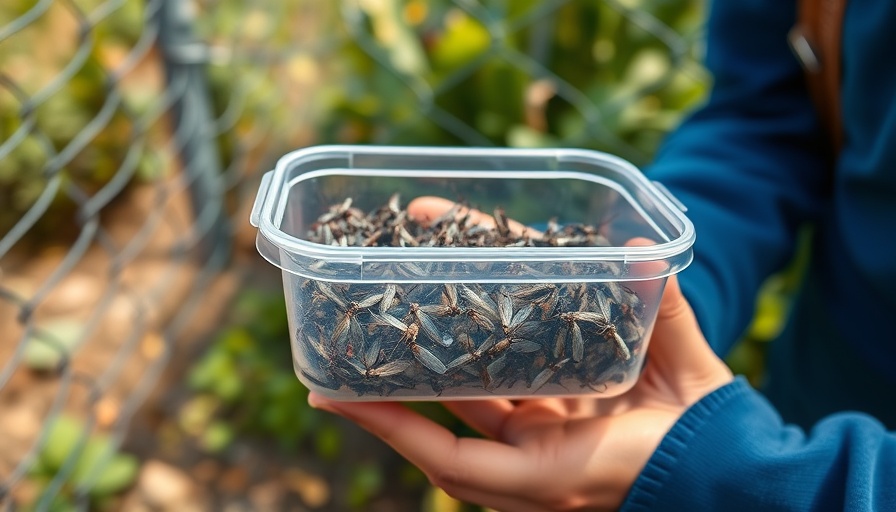
Understanding the Summer Pest Problem in Tennessee
As summer sweeps across Tennessee, the sweltering heat brings with it an unwanted surge in pest populations. This year's mild winter—a blend of warmth and moisture—allowed insects to breed more continuously than usual, potentially setting the stage for an especially troublesome season. According to Smith's Pest Management, common pests like mosquitoes, fleas, and ticks thrive in warmer temperatures, making them particularly active during dusk and dawn hours.
The Lifecycles of Common Summer Pests
So, just what bugs tend to invade homes across Tennessee as the mercury rises? Mosquitoes are among the most notorious. Typically, they start reproducing as soon as temperatures hover above 50°F, with optimal conditions occurring when it's between 70°F and 90°F. East Tennessee reports that the peak activity for these bloodsuckers aligns with those balmy evenings and early mornings when families often gather outside.
Other pests like fleas and ticks also pose significant threats during summer. Fleas not only affect pets but also can create uncomfortable living conditions for families if left unchecked, as a small infestation can quickly escalate. Ticks, especially those bearing Lyme disease, present health risks as they make their home in tall grasses and shrubs, waiting to latch onto unsuspecting passersby.
Tips to Keep Your Home Bug-Free
As summer approaches its peak, it's essential for homeowners to be proactive in preventing pests from infiltrating their space. Here are smart and simple methods to bolster your defenses:
- Regularly empty any standing water around your property, including flowerpot trays and birdbaths, as these can become breeding grounds for mosquitoes.
- Seal pet food and avoid leaving dishes out overnight—pests are opportunists and will take advantage of any available food source.
- Trim back any tree branches or shrubs that come into contact with your home—these serve as potential bridges for critters wanting to gain access.
- Consider having your yard treated for ticks and fleas, especially if pets frequent these areas.
Why These Precautions Matter
Understanding the necessity of such preventative measures goes beyond just keeping your space bug-free. It also revolves around protecting yourself and your loved ones from various diseases carried by these pests. For instance, mosquitoes can transmit viruses like West Nile and Zika, while tick bites can lead to Lyme disease, which has been on the rise in many regions.
Not only do pests bring health risks, but they can also lead to significant discomfort in daily life. Imagine you’re sitting outside on a cool summer evening, only to be bombarded by relentless mosquitoes! Adopting preventive measures means transforming your summer nights, allowing you to bask in the vibrancy of local life without nuisances interrupting the enjoyment.
The Role of Community in Pest Management
Beyond individual precautionary steps, there’s broader significance to consider—like how neighbors can work together to tackle the pest situation in their community. Joining forces on initiatives such as neighborhood cleanups can significantly reduce standing water accumulation and overall pest prevalence. Fields and yards of Moore, Knox, and surrounding counties share similarities; therefore, collective efforts can create an impactful change.
Final Thoughts: Stay Alert and Active
This summer, as Tennessee citizens embrace the warm weather, they should remain vigilant to keep household pests at bay. The precautions highlighted above can create a solid barrier against unwanted insect visitors. With upbeat community engagement and diligence in these pest management strategies, everyone can savor a vibrant, bug-free season, moving outdoors to enjoy all the lovely aspects of the Tennessee summer.
As you prepare for summer, take action now and implement these pest prevention tactics. Your pest-free future self will thank you for it!
 Add Row
Add Row  Add
Add 



 Add Row
Add Row  Add
Add 
Write A Comment